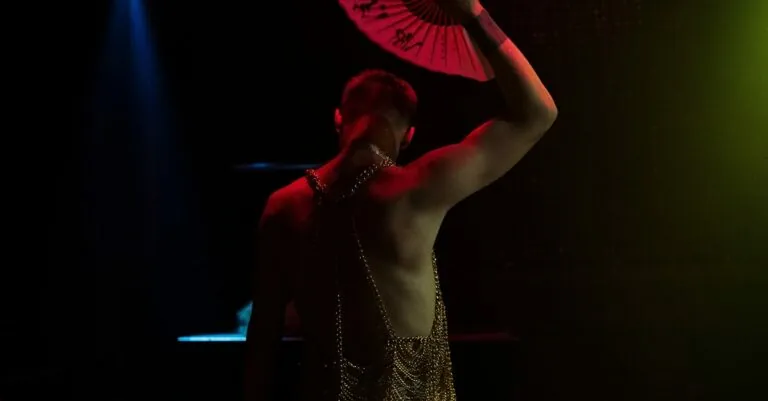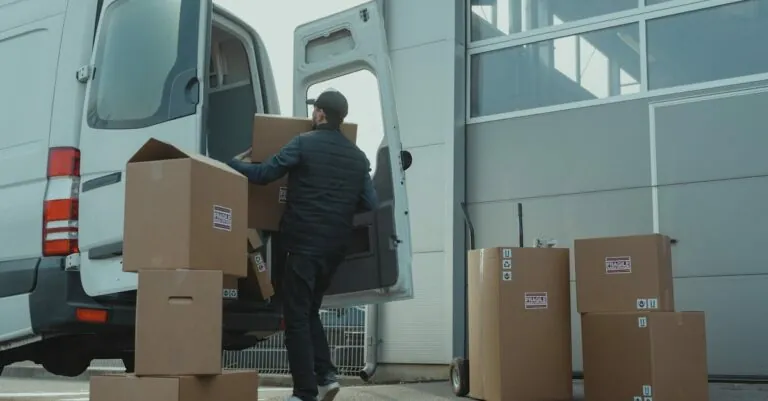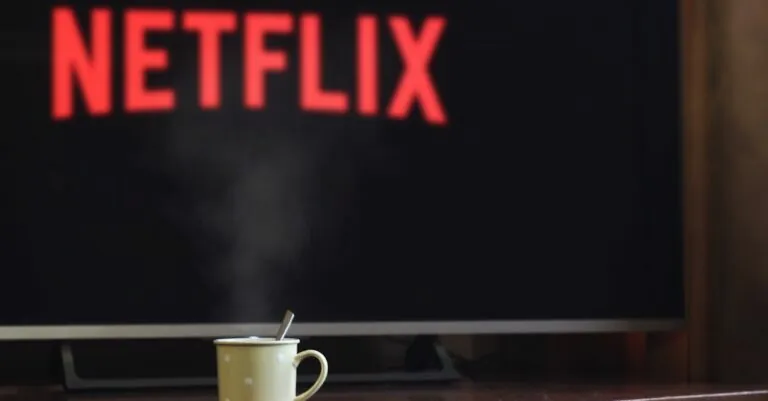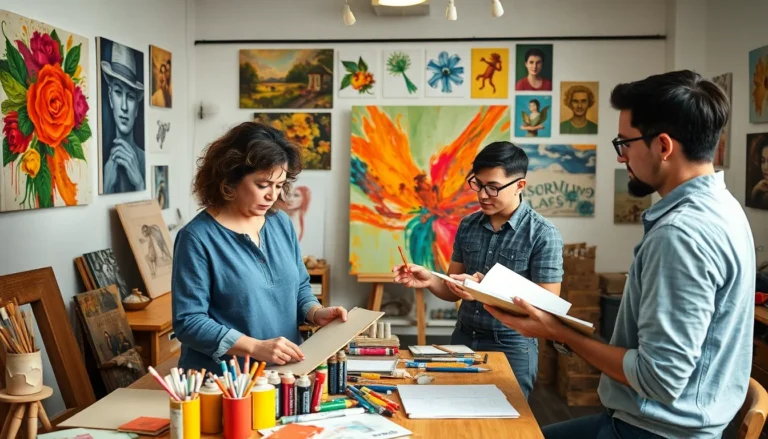Table of Contents
ToggleIn a world where nostalgia reigns supreme, TV reboots have become the new goldmine for networks. From beloved classics to cult favorites, these revivals spark excitement and, let’s be honest, a fair share of eye rolls. Fans eagerly dive into the fray, armed with opinions sharper than a sitcom punchline. Will the new version capture the magic, or will it crash harder than a 90s sitcom’s laugh track?
Overview of TV Reboot Reactions
TV reboot reactions vary significantly among audiences and critics. Fans often express excitement about familiar characters and storylines returning to the screen. Nostalgia plays a crucial role in generating buzz, triggering positive memories from the original series. Nevertheless, skepticism often accompanies such enthusiasm. Viewers worry that reboots might fail to recapture the magic that made the original shows beloved.
Critics analyze the success of reboots based on several factors. Quality of writing stands out as a major criterion for evaluation. Adaptations that maintain the essence of the original often fare better with audiences. Cast selection also influences reactions. When original cast members return, legacy connections strengthen viewer interest.
Data from recent surveys shows that 65% of fans prefer networks to create fresh content over rebooting existing shows. In contrast, 35% express a willingness to watch reboots if the execution captures the original’s spirit. The gap highlights a divide in viewer preferences, showcasing a mix of nostalgia-driven and originality-seeking sentiments.
Social media serves as a platform for immediate audience feedback. Reactions range from enthusiastic endorsements to heated criticism, shaping the discourse around reboots. Engaging with audiences through these platforms allows networks to gauge public opinion and adjust their approaches accordingly.
Successful reboots often incorporate modern storytelling techniques, appealing to both old fans and a younger audience. The balance between honoring the original and innovating for contemporary tastes proves crucial. Ultimately, the mixed reactions to TV reboots reflect the complexities of nostalgia, expectation, and storytelling evolution.
Positive Reactions to TV Reboots
Many viewers respond positively to TV reboots, with excitement for the return of beloved characters and storylines. Nostalgia plays a significant role in shaping these reactions.
Nostalgia Factor
Nostalgia often drives enthusiasm for reboots. Familiarity with original shows sparks joy among fans. Characters from past series evoke cherished memories, which enhances viewer engagement. The emotional connections established previously create a welcoming atmosphere for the new adaptations. For instance, reboots like “Fuller House” and “Will & Grace” successfully tap into this feeling, drawing in audiences eager for a taste of the past. Fans commonly share their excitement online, celebrating moments that remind them of their favorite episodes.
Fresh Takes on Classic Stories
Fresh perspectives breathe new life into classic narratives. Writers introduce modern themes, making stories more relevant to today’s audiences. Innovative storytelling techniques often captivate viewers who crave originality. Reboots such as “The Conners” and “Charmed” showcase diverse characters and contemporary issues, appealing to a broader audience. Successful adaptations take the core of the original while expanding plotlines and character development. This modern twist keeps fans engaged, generating discussions about the changes and their implications. With these fresh takes, viewers explore new dimensions within familiar worlds.
Negative Reactions to TV Reboots
Negative reactions to TV reboots often stem from deep-seated nostalgia and expectations. Fans express concern that changes ignore the essence of beloved shows, leading to resistance among certain viewers.
Resistance to Change
Resistance to change frequently surfaces when networks announce reboots. Nostalgic fans typically find it hard to embrace new interpretations of their favorite characters and storylines. Critics often argue that modern updates can dilute the charm of original narratives. Adaptations that stray too far from established themes may alienate core audiences. Viewer frustrations can manifest through social media backlash, demonstrating immediate disapproval. Some advocates for original shows assert that new iterations shouldn’t overshadow classic content. Others feel that reviving a series can inadvertently undermine the cultural significance it held. This persistent tension between old and new significantly affects the overall perception of reboots.
Comparison to Original Series
Comparison to original series remains a crucial point of contention among fans and critics alike. Many viewers judge new adaptations against their beloved predecessors. High expectations often lead to disappointment when reboots fail to capture the original’s spirit. Critics emphasize that alterations to character development or plotlines can result in negative reactions. Fans frequently note that, although some elements are updated for modern audiences, essential qualities should remain intact. Successful reboots often find a balance between homage and innovation, but many fail to achieve this harmony. Audience sentiment typically reflects a desire for respectful adaptations that honor the original series while introducing new, relevant themes.
The Role of Social Media in Shaping Reactions
Social media significantly influences reactions to TV reboots. Platforms like Twitter and Facebook allow fans to express immediate opinions and engage in discussions.
Instant Feedback and Reviews
Quick user feedback often sets the tone for public perception. Viewers post reviews within moments of a reboot airing, sharing their thoughts on character portrayals and plot developments. This immediacy can create a ripple effect, as opinions spread rapidly through likes and shares, shaping trends. Audience sentiments often polarize; some express excitement, while others take a more critical stance. A survey indicates that 78% of viewers check social media for opinions before watching reboots, underscoring the medium’s role in facilitating dialogue about expectations and outcomes.
Influencer Impact
Social media influencers play a pivotal role in shaping fan reactions. They provide insights and critiques that can sway viewer perceptions significantly. With millions of followers, influencers amplify discussions around reboots, offering both validation and alternative perspectives. Their reviews often become reference points for fans, influencing viewing choices and popular discourse. Data reveals that around 60% of fans follow influencers for content recommendations, highlighting the necessity of their voices in the reboot conversation. As influencers evaluate the quality and creativity of reboots, their impact on viewer sentiment becomes increasingly pronounced.
Case Studies of Notable TV Reboots
TV reboots have sparked a wide range of reactions, with both positive and negative responses from audiences. Examining successful and controversial reboots sheds light on viewer preferences and expectations.
Successful Reboots
“Fuller House” reignited interest by bringing back familiar characters, resulting in a 62% viewer approval rating. Fans embraced the nostalgia while appreciating new storylines that resonated with contemporary issues. “Will & Grace” also returned successfully, with praise focusing on its witty writing and strong chemistry between the cast. The show captured a dedicated following, highlighting the importance of maintaining core elements while exploring fresh narratives. “The Conners” successfully updated themes from “Roseanne,” reflecting current societal topics and demographics, helping it find relevance in today’s landscape.
Controversial Reboots
Some reboots like “Charmed” faced backlash due to significant changes that diverged from the original series. Critics pointed out that the new direction alienated loyal fans, generating mixed reviews. “Ben-Hur,” a reimagining of the classic film, received criticism as viewers felt it failed to capture the grandiosity of its predecessor. The difference in thematic direction led to a divide among audiences and limited its success. Additionally, the reboot of “The Office” has raised debates on whether reviving such a beloved show is advantageous or merely a gamble, showcasing the struggle between nostalgia and innovation.
The landscape of TV reboots continues to evoke a wide range of reactions from fans and critics alike. Nostalgia drives excitement for familiar characters and storylines but also breeds skepticism regarding the ability of new adaptations to capture the original’s essence. As social media amplifies these sentiments, viewers find themselves navigating a complex web of opinions and expectations.
While some reboots successfully breathe new life into beloved narratives, others struggle to meet the high standards set by their predecessors. The ongoing dialogue about these adaptations underscores the delicate balance between honoring the past and embracing innovation. Ultimately, the future of TV reboots will depend on how well creators can blend nostalgia with fresh perspectives that resonate with today’s audiences.







